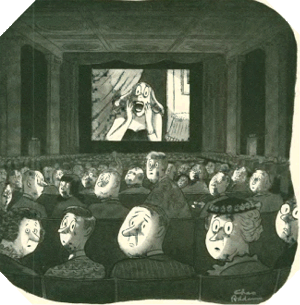 |
| Liszt a few months before his death. Photo by Nadar |
Perhaps Liszt’s “La Vallée d'Obermann” is as good an example as any of the man’s musical legacy, arguably the most profound work in an extraordinary collection of piano works entitled “Années de Pèlerinage” apparently initially inspired by scenes or moods associated with Liszt's travels with his one-time lover, Marie d'Agoult (a popular writer) throughout Switzerland and Italy during the period 1835-39, but in gestation for some 20 years before publication. This piece usually runs close to fifteen minutes and is the longest in the set. A quotation from Byron prefaces the music:
"Could I embody and unbosom now that which is most within me --could I wreak my thoughts upon expression, and thus throw soul, heart, mind, passions, feelings, strong or weak, all that I would have sought, and all I seek, bear, know, feel and yet breathe --into one word; and that one word were Lightning, I would speak; but as it is, I live and die unheard, with a most voiceless thought, sheathing it as a sword”.
 |
| ... the great maestro |
According to recent biographical research, Liszt in later life resisted hearing his Vallée d'Obermann. Apparently whenever a student brought the piece to play he declined to hear it ... "his music seemed to be burdened with memories for him, some too painful to bear".
There exists a superb recording of the work in a remarkable live concert performance (Carnegie Hall, 1966) by a celebrated virtuoso pianist which subtly captures the wonderful essence of the work, its power, deep pathos, and sheer majesty. It is fascinating because due to the exemplary skill and mature muscianship of the artist, it almost seems like a surreal time warp sound-bite from somewhere in the distant past, conceivably conveyed directly and serendipitously from the great master himself:
http://www.youtube.com/watch?v=9p1qK57H_6k&feature=g-all-u
http://www.youtube.com/watch?v=9p1qK57H_6k&feature=g-all-u



The pianist is Vladimir Horowitz. He performed the same piece a few months later at Carnegie Hall which was issued as a public recording. If someone wanted to purchase just one recording of Horowitz's, I would definitely recommend this one. Not that it is the best, but because all styles and characteristics of Horowitz's can be heard here. His magic touch, variegated tone, lyrical tranquility, creativity, unique rubati, sonority, thunderous chords, hyper tension, exhilarating excitement, super fast octaves, all of them are there. One can even hear his ingenious changes of the notes at various spots, some of which he actually borrowed from an earlier edition by Liszt. By the way, I consider this one of Liszt's greatest pieces.
ReplyDeleteM. Liszt's playing contains abandonment, a liberated feeling, but even when it becomes impetuous and energetic in his fortissimo, it is still without harshness and dryness. He draws from the piano tones that are purer, mellower and stronger than anyone has been able to do; his touch has an indescribable charm. He is the enemy of affected, stilted, contorted expressions. Most of all, he wants truth in musical sentiment, and so he makes a psychological study of his emotions to convey them as they are. Thus, a strong expression is often followed by a sense of fatigue and dejection, a kind of coldness, because this is the way nature works.
ReplyDeletel attended a few of Horowitz's concerts in the late 60's including one where he played this. As great as the recording is it pales beside the experience of having heard it live. The beauty and excitement were just about overwhelming. From this great distance in time I can still feel it.
ReplyDelete